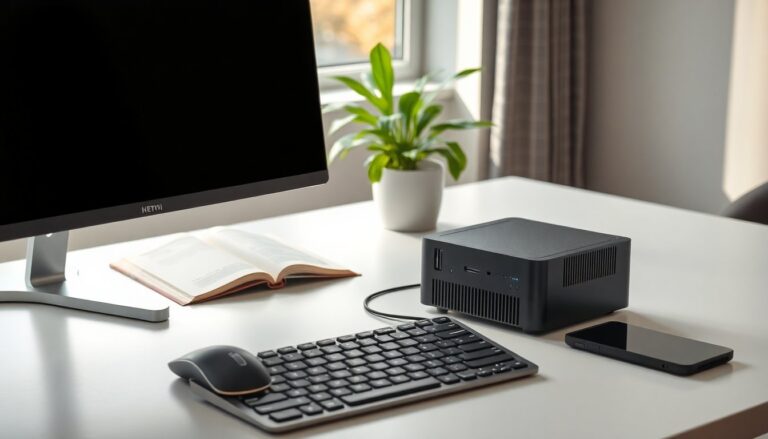Argomenti trattati
In a technology-driven landscape, many individuals opt for laptops when selecting a new computer. Their portability is appealing, combining essential features like a display, keyboard, trackpad, speakers, and a webcam into one device. However, this convenience often comes at a higher cost and may not be suitable for everyone.
For those primarily using a computer at home, especially connected to a desk with peripherals such as an external monitor, keyboard, and mouse, it may be beneficial to reconsider this choice. Instead of a laptop, a mini PC could more effectively meet your needs.
Cost-effectiveness of mini PCs
Mini PCs frequently present a more economical choice compared to laptops, especially when evaluating similar hardware configurations. This cost advantage arises because mini PCs do not include additional components like screens, batteries, or built-in speakers, which are standard in laptops.
For example, consider the M2 Mac Mini priced at $599, significantly lower than the M2 MacBook Air, which retails for $999. By omitting the costs associated with the extra features of a laptop, the mini PC offers a powerful computing experience without excessive expenditure.
Performance advantages
A notable benefit of mini PCs is their potential for enhanced performance. Unlike laptops, which have limitations in size and airflow, mini PCs can be designed without these constraints. This flexibility allows for superior cooling systems, enabling internal components to operate at higher performance levels.
For instance, the Beelink SER8, retailing for $479, features a Ryzen 7 8745HS CPU that achieves impressive scores exceeding 13,000 in Cinebench R23’s multi-core tests. In comparison, the Asus Zenbook 14 OLED laptop, priced at $850 and equipped with a Ryzen 7 8840HS, only slightly outperforms the mini PC, scoring 13,777 in the same benchmark. This illustrates that mini PCs can closely compete with laptops regarding performance.
Longevity and upgradability
Another compelling reason to consider a mini PC over a laptop is their longevity. Mini PCs lack batteries, avoiding the complications associated with constant charging and discharging. This absence leads to less heat generation, potentially extending the lifespan of internal components.
Moreover, mini PCs typically provide more opportunities for upgrades. Many laptops restrict users to their original configurations with limited options for part replacement. In contrast, mini PCs allow for significant modifications. For example, the GMKTec M5 Plus Gaming model, priced at $399, accommodates both an M.2 slot and a 2.5-inch SATA slot, enabling users to add more storage or upgrade RAM beyond the pre-installed 32GB.
Connectivity options
As laptops have become increasingly streamlined, their selection of ports has often diminished, compromising connectivity. Many modern laptops feature only a few USB ports and perhaps one HDMI output, compelling users to rely on docking stations or hubs for additional connections.
In contrast, mini PCs are designed with enhanced connectivity in mind. A basic mini PC might include multiple USB-A ports, HDMI outputs, and Ethernet connections. The Minisforum UM890 Pro, priced at $647, boasts four 10Gbps USB-A ports, two HDMI ports capable of 4K output, and dual Ethernet ports, demonstrating that mini PCs can offer a superior array of connectivity options.
For those primarily using a computer at home, especially connected to a desk with peripherals such as an external monitor, keyboard, and mouse, it may be beneficial to reconsider this choice. Instead of a laptop, a mini PC could more effectively meet your needs.0

